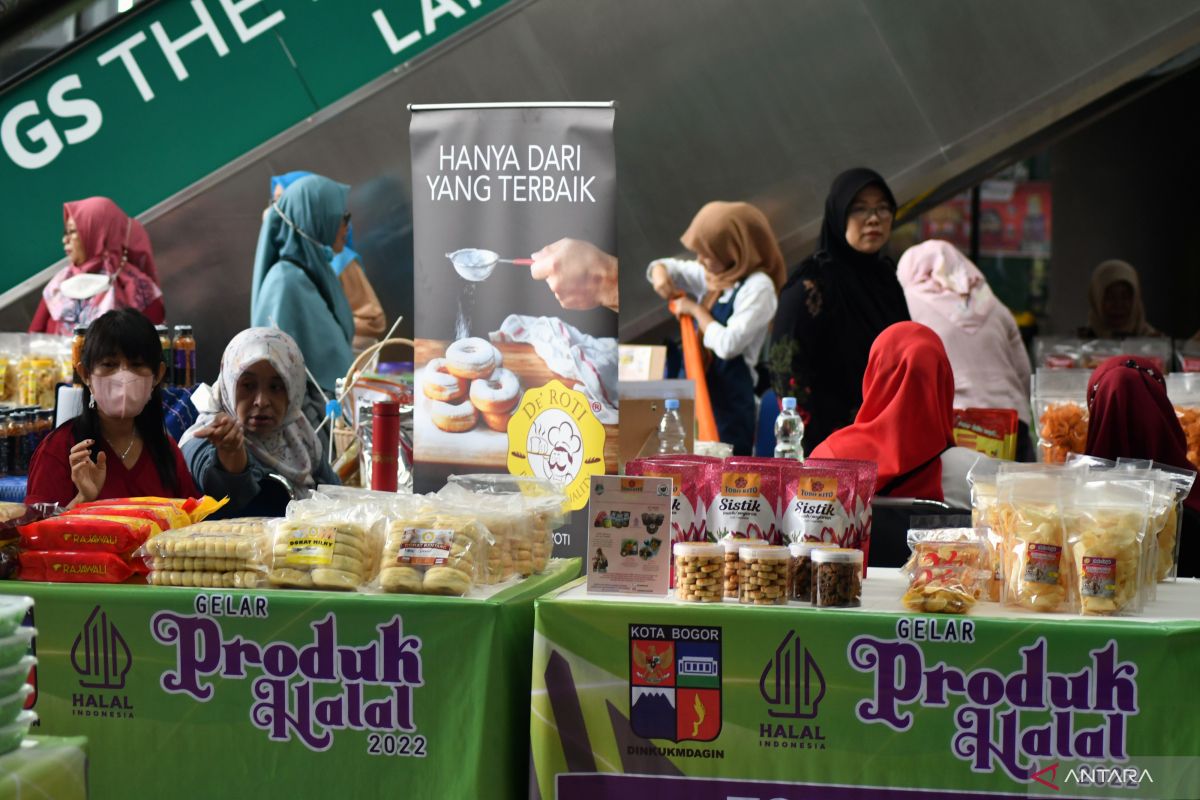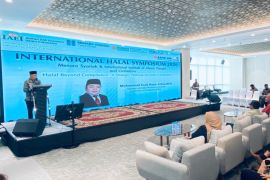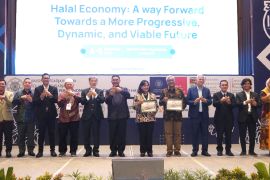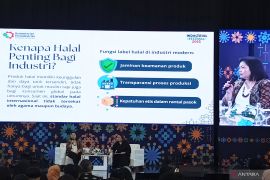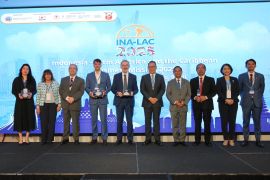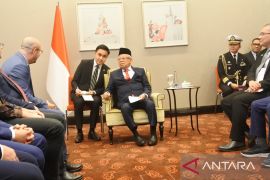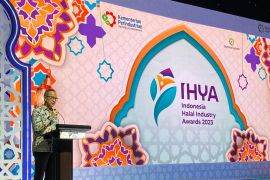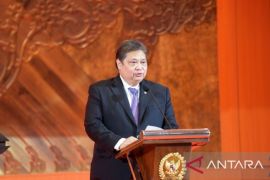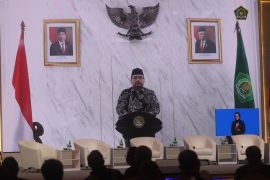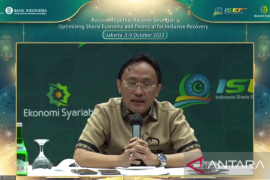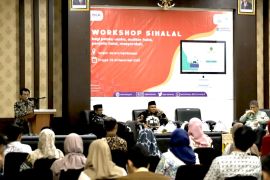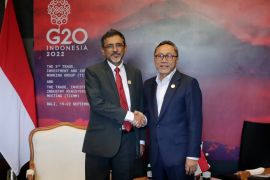The government defines the halal industry, which, in its production process, follows Islamic law as a key driver for the economy of 240.62 million Muslims in Indonesia and 1.8 billion worldwide.
In the 2023-2029 halal industry roadmap, initiated by the National Committee for Sharia Finance, the government divided the industry into two sections: the core halal industry and the developing halal industry.
The core halal industry includes food and beverages, pharmaceuticals, cosmetics, and services, while the developing halal industry covers sectors such as fashion, Muslim-friendly tourism, and the Islamic creative economy.
The roadmap outlines four key strategies: increasing productivity and competitiveness, implementing and strengthening policies or regulations, improving finance and infrastructure, and enhancing halal branding through increased public awareness.
In 2023, the economic turnover of the halal industry had reached Rp36 trillion and is projected to contribute up to US$5.1 billion per year to the national gross domestic product (GDP).
Furthermore, with the global Muslim population currently reaching 1.8 billion people, the global consumption of halal industrial products is projected to reach US$2.4 trillion by the end of 2024, up from its current US$2.29 trillion valuation.
Given these figures, Indonesia has a strategic opportunity to become the center of the world's halal ecosystem. However, this requires strengthening the ecosystem and providing professional players in the industry.
From the banking sector, the growth of industrial assets in this sector showed impressive results, with Sharia assets growing by 9.07 percent compared to national bank assets, which grew by 8.9 percent.
This becomes a significant opportunity for the domestic halal industry, as the Indonesian halal industry ecosystem has risen to third place globally, competing with Malaysia and Saudi Arabia.
With the opportunity of high profits from the halal industry, the government is capitalizing on the opportunity by implementing a mandatory halal certification policy which is expected to accommodate the domestic industry to become a center for global halal product manufacturing which would contribute to the national economic growth target of over eight percent annually.
Halal certification is a must
Given the significant economic value of the halal industry, the government has begun implementing mandatory halal certification for businesses operating in this sector.
The legal basis for making this certification mandatory is Law Number 33 of 2014 concerning Halal Product Guarantee, amended by Law Number 11 of 2020 concerning Job Creation.
This certification is required for Indonesian products to be exported to countries that are members of the Organization of Islamic Cooperation (OIC).
As of October 2024, three categories of products requiring halal certification are food and beverage, raw materials, food additives, and additives used in food and beverage products, and the third is slaughtered products and related services.
Entrepreneurs who obtain halal certification gain the benefits of halal assurance, enhanced consumer trust, broader export market opportunities, and added value for their products, as certified products have unique selling points (USP).
Another advantage is that products with halal certification will be integrated into the mutual recognition agreement (MRA) of Muslim countries that expand their marketing opportunities.
The cost of halal certification varies depending on the business size. For small and medium enterprises (IKM) or micro and small businesses (UMK), the fee ranges from Rp300 thousand to Rp500 thousand; for medium-sized businesses, it is Rp5 million; and for large businesses, the cost is Rp12.5 million. The certification is valid for four years.
To support the fulfillment of this certification and maximize the halal industry's potential, the government, through Halal Product Assurance Organizing Body (BPJPH) and the Ministry of Industry (Kemenperin), is actively offering free certification for IKM/UMK businesses.
According to government data, by the end of September 2024, the total number of products with halal certification had reached 5,172,383.
The SMEs or UMK businesses that obtained halal certification can participate in international exhibitions to expand their networks and open export opportunities to OIC countries.
Challenges and strategies
Indonesia faces several challenges in fully harnessing the economic potential of the halal industry, including a shortage of human resources (HR) to support the industry's sustainability and the massive import of goods.
To address these challenges, the government has implemented several strategies, including training programs and a requirement to prioritize domestic products.
One such initiative is the "3 in 1" training program, which provides the community with training, skills certification, and job placement opportunities. Currently, 25,480 graduates across 35 provinces have been trained, helping to meet the high demand for skilled workers in the halal industry’s supporting sub-sectors, including food and beverages, agro-industry, and fashion.
In addition, to increase the consumption of halal products in the domestic market, the government has introduced the "Increase the Use of Domestic Products" (P3DN) program that mandates ministries, provincial governments, state-owned enterprises, and regional-owned enterprises to allocate 40 percent of their purchasing budgets to buy domestically-produced goods.
This initiative not only promotes domestic consumption but also strengthens the competitiveness of Indonesia's halal industry, ensuring that global market fluctuations have less impact on the core halal sector's performance.
By implementing mandatory halal certification and other strategies to address these challenges, the halal industry is expected to drive economic growth of over eight percent.
Related news: Global-level consumption of halal products estimated to reach US$3.1 T
Related news: Religious Affairs Ministry launches Indonesia Global Halal Fashion
Translator: Ahmad Muzdaffar Fauzan, Yoanita Hastryka Djohan
Editor: Tia Mutiasari
Copyright © ANTARA 2024
